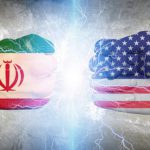American companies that have invested so much in the fracking technology are interested in raising the price of crude oil. It can only be done if the largest producers agree on the quantities that they put on the world market. Iran since the time when the pro-American shah was deposed has not been on friendly terms with the United States and so it will not go hand in hand with American plans. That is the reason why it must be put out of the equation, and that is also why Washington is looking for pretexts to go to war with Tehran.
Rumour about the impending war against Iran has persisted for some time now. After Yugoslavia, Afghanistan, Iraq, Libya and Syria Tehran appears to be the next target. Washington is taking firm steps against Iran. As for now these are economic only. Rumour about a possible coalition uniting, apart from the United States, also Saudi Arabia, Israel and Australia is already spreading. What does Iran stand accused of? Of attempting to produce its own nuclear weapons and supporting – yes, you guessed it right – terrorism. The usual stuff.
Economic and diplomatic pressure has been applied on Tehran, and President Donald Trump dabbles in sabre rattling. In twitter. His state secretary delivered a speech, an ultimatum to be exact, which places high demands on Iran that it resign from its nuclear program and stop supporting Hezbollah and Hamas in Lebanon, Houthi in Yemen, Talibans in Afghanistan and Al-Qaeda everywhere else.The other side of the conflict will never be heard. As usual. We must only rely on the accuser’s statements. Just as it was the case with Yugoslavia, Afghanistan, Iraq, Libya, Syria, North Korea and you name it.
Apart from imposing sanctions and attempting to isolate Tehran diplomatically, the American administration resorts to the same tactics of disrupting the national unity and resolve of its enemy. So, it is trying to drive a wedge between the government and the people. The former is referred to as a regime which sponsors terrorism, inflicts chaos in the region, suppresses the legitimate rights and aspirations of its citizens and is responsible for about every occurrence of evil, not excluding setting off the refugees waves by chipping in in the Syrian civil war. The latter receives declarations of Washington’s deepest worries about their fate and words of encouragement aimed at having the people rebel against their authorities.
The other wedge is of international character: it is the one driven between the religious opponents of Saudi Arabian Sunnites and Iranian Shiites. Washington’s sleight of hand was to make Saudi Arabia cooperate with Israel against Iran; or to make Israel cooperate with Saudi Arabia. Tehran may have a hard time trying to defend its sovereignty.
Now these are commonly known facts. We are rather interested in something other than them. What lessons should Iran and in fact any country of a similar size and potential draw?
Number One. A state needs to have as much independent economy as possible so as to make economic pressure pointless or at least significantly weakened. Since complete economic independence (autarchy) may be hard to achieve or not particularly desirable or not at hand at the moment of a conflict, powerful allies are important.
Hence lesson Number Two. A state ought to work diplomatically in favour of a multi-polar world in which it makes sure it does not let itself be dependent on one superpower. In the case of Iran it is China, which vows to continue purchasing Iranian oil despite American sanctions, and it is Russia, which offers Tehran its efficient air-defence systems.
How much worse would Tehran fare without Beijing and Moscow?







2 comments on “Lesson from Iran”
You are wrong. High oil prices is not what Trump wants.
That is what he communicates, especially before the midterm election. His actions show the opposite. It is inevitable, In the next Gefira (22 September) we will explain it step by step.